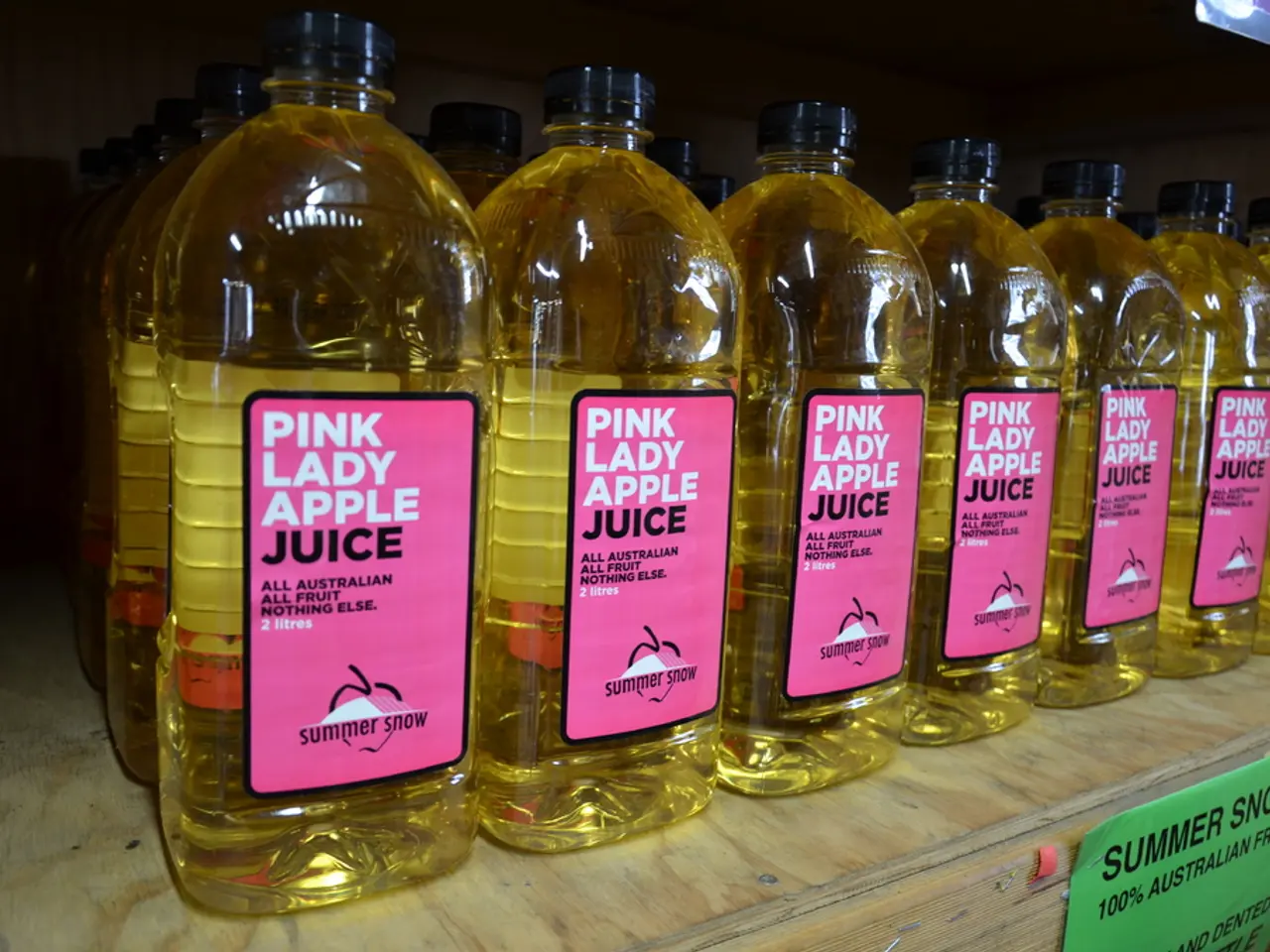Foods Rich in Electrolytes: Electrolyte-Laden Food Choices
In the realm of health and nutrition, electrolytes play a crucial role in maintaining our bodies' functions. These substances, which conduct electricity when they dissolve in water, are essential for the transfer of electrical impulses from the heart, muscle, and nerve cells to other cells.
Below are general guidelines for daily intake of key electrolytes for adults, including considerations for athletes. Note that athletes—particularly those engaging in prolonged or intense exercise—may have different needs, especially for sodium and potassium.
| Electrolyte | General Adult Recommendation | Athlete-Specific Guidance | |-------------|----------------------------|--------------------------| | **Sodium** | ≤2,300 mg/day (CDC)[1] | May need extra during prolonged exercise (e.g., 1 gram/hour during heavy sweating)[1]; general public guideline may not apply if sweat losses are high | | **Potassium** | 2,600–4,700 mg/day, with adequate intake (AI) of 4,700 mg for adults[2][4] | Endurance/heat-stressed athletes may need more due to sweat losses[2]; replenish via diet or supplements (not exceeding 99 mg per serving in US supplements)[2] | | **Calcium** | 1,000 mg/day (ages 19–50), 1,200 mg/day (women > 50, men > 70) | No specific athlete adjustment unless dietary intake is inadequate or in high-impact sports (e.g., for bone health). | | **Magnesium** | 400–420 mg/day (men), 310–320 mg/day (women) | No specific athlete adjustment; possible increased need with high sweat losses, but typically met by diet[1]. | | **Phosphorus** | 700 mg/day | No specific athlete adjustment; usually met through diet. |
Foods rich in electrolytes include fruits like bananas, dried apricots, prunes, and other potassium-rich options, as well as other vegetables such as avocado, sweet potato, and squash. Leafy green vegetables such as spinach and kale are good sources of calcium and magnesium, while beans and lentils contain magnesium, potassium, and phosphorous. Potatoes are a good source of phosphorous and magnesium, and, with their skin on, they are also high in potassium. Dairy products such as cheese and yogurt are good sources of calcium, and drinks like milk, orange juice, coconut water, soy milk, and tomato juice naturally contain electrolytes.
For most adults, the CDC recommends less than 2,300 mg per day of sodium—about one teaspoon of salt. However, athletes exercising intensely for more than 60 minutes, especially in hot or humid conditions, may lose significant sodium through sweat and could require additional intake during or after exercise to maintain hydration and performance. The guideline for such cases is about 1 gram (1,000 mg) of sodium per hour during heavy sweating.
Endurance athletes or those exercising in hot environments may need extra potassium due to sweat losses, but over-supplementation should be avoided, especially for those with kidney disease or high blood pressure. US supplements are capped at 99 mg per serving.
Calcium, magnesium, and phosphorus requirements are generally unchanged for athletes beyond what is recommended for the general population, unless dietary intake is insufficient. Special attention is warranted only in cases of medical conditions or specific athletic demands (e.g., bone stress in runners).
Hydration is critical for athletes, with fluid needs increasing with exercise duration and intensity, especially in hot or humid environments. Weighing yourself before and after exercise helps estimate fluid loss and informs rehydration needs. For most low- to moderate-intensity activities, water is sufficient, but intense or prolonged exercise (>75 minutes) may warrant electrolyte replacement, especially sodium and potassium.
Personalized assessment for sweat and electrolyte loss is recommended for athletes training or competing in demanding environments. Always consult a healthcare provider or sports dietitian before significantly altering electrolyte intake, particularly if you have underlying health conditions.
[1] Centers for Disease Control and Prevention (CDC) [2] Institute of Medicine (IOM) [3] American College of Sports Medicine (ACSM) [4] National Academy of Medicine (NAM)
- In the health-and-wellness sector, electrolytes are essential for our bodies' functions, particularly in the transfer of electrical impulses from the heart, muscle, and nerve cells.
- For the general adult recommendation, sodium intake should be less than 2,300 mg per day, according to the Centers for Disease Control and Prevention (CDC).
- During prolonged or intense exercise, athletes may need extra sodium, up to 1 gram per hour during heavy sweating.
- Potassium intake for adults ranges from 2,600 to 4,700 mg per day, with endurance athletes or those engaging in heat-stress activities possibly needing more due to sweat losses.
- Calcium requirements for athletes remain the same as those prescribed for the general population, unless dietary intake is insufficient or there are specific athletic demands.
- Magnesium requirements are typically met by diet and no specific athlete adjustment is needed, though there may be an increased need with high sweat losses.
- Foods rich in electrolytes include fruits like bananas, leafy green vegetables such as spinach and kale, beans, lentils, potatoes, dairy products, and drinks like milk, orange juice, coconut water, and tomato juice.
- Hydration is critical for athletes, with fluid needs increasing with exercise duration and intensity, especially in hot or humid environments.
- Personally assessing sweat and electrolyte losses is recommended for athletes training or competing in demanding environments.
- Besides dietary considerations, athletes may need electrolyte replacement, especially sodium and potassium, during intense or prolonged exercise (>75 minutes).
- Endurance athletes should be mindful of their potassium intake and avoid over-supplementation, especially for those with kidney disease or high blood pressure.
- Always consult a healthcare provider or sports dietitian before significantly altering electrolyte intake for personalized and safe advice on your health-and-wellness and nutrition lifestyle.




